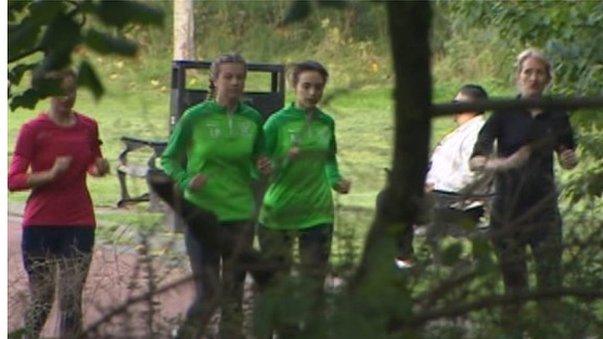Women should be involved in park design to combat safety fears, says study
- Published
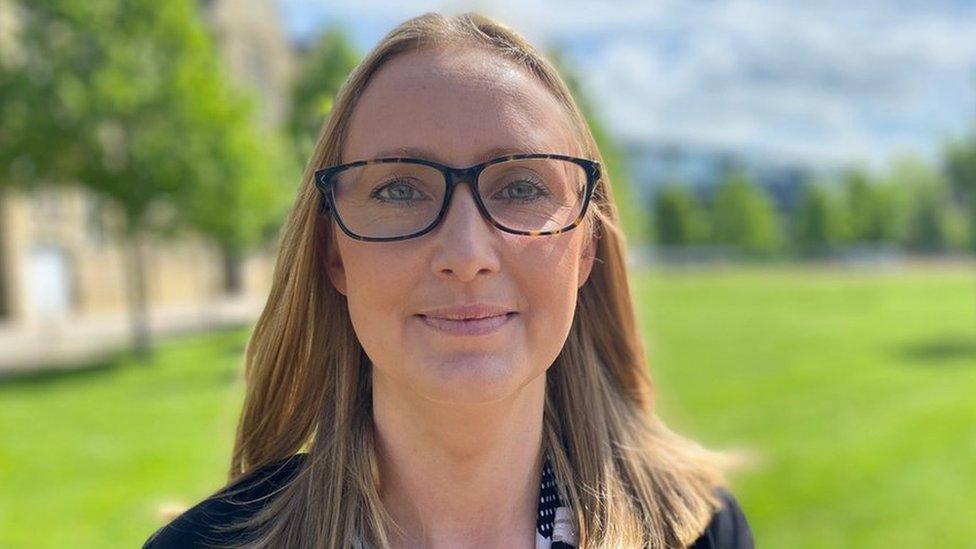
Dr Anna Barker said the study found women were less likely to use parks than men over safety fears
Women and girls should be involved in the design of parks to help tackle safety fears, new guidance says.
Research by the University of Leeds suggested four out of five women felt vulnerable in parks after dark.
The study, commissioned by West Yorkshire mayor Tracy Brabin, called for better lighting, lower hedges and "escape routes" in green spaces.
The guidelines were launched at the start of a two-day conference examining female safety in parks.
The research, which involved interviews with more than a 100 women and girls, external, was led by Dr Anna Barker from the university's law school.
"In Britain, women are three times more likely than men to feel unsafe in a park during the day," she said."This is worse after dark, when as many as four out of five women in Britain say that they would feel unsafe walking alone in a park, compared to two out of five men."
Dr Barker said this meant women and girls were less likely to use parks than men and boys, which had a significant impact on their lives.

'It's not a nice place': Three women on their relationship with parks
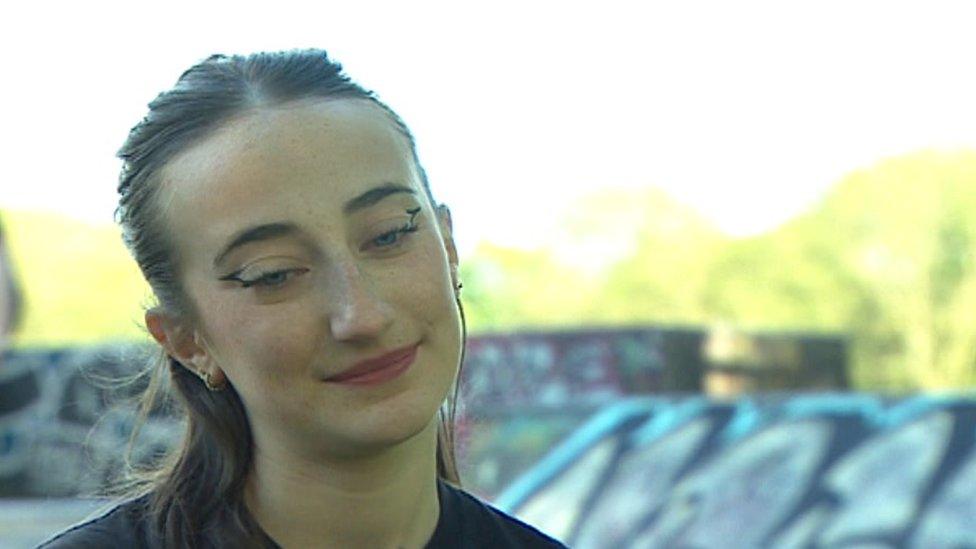
Skateboarder Grace Brodie said she avoids parks in the winter months
Grace Brodie, social secretary of the University of Leeds' skateboarding society, said many of their female members would not go to outdoor skate parks due to safety concerns.
"There's a lot of strangers that bob about that can make you feel quite uncomfortable," she said.
Ms Brodie skates in Hyde Park in Leeds but said she would not go there alone, especially during the winter months.
"You avoid it with a wide angle, I don't even walk through the park let alone come and skate."
Emma Ray is a keen jogger in Sheffield but she avoids the city's parks due to worries over her safety.
"There's no lights at all, it is very dark and if I am exercising earlier in the morning, particularly in the winter, it is not a nice place to come and exercise.
"I tend to avoid the parks and run along the roads."
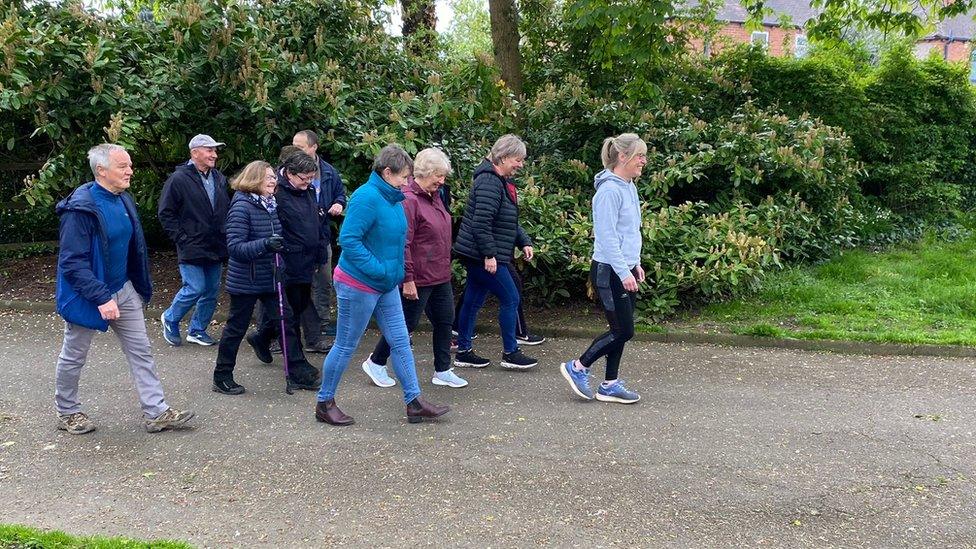
This walking group in Wakefield enables women to enjoy green spaces safely
Ruth Marbeck belongs to a walking group in Wakefield and said she feel much more comfortable being out with a group.
If she goes out alone she tells someone where she is going and what time she will be home and selects a safer route.
"I may walk more in the town centre rather than in the park particularly if there weren't many people about."
It does mean she does not get to enjoy the parks and green spaces she enjoys.
"You do feel you miss out sometimes as a woman on your own."

The new guidelines, drawn up in partnership by the mayor, the University of Leeds, Make Space for Girls and Keep Britain Tidy, are aimed at park managers, local authorities, police and community groups.
Other principles cited include organising activities to extend women's use of parks and designing sites so paths and features maximise visibility and are easy to navigate.
Ms Brabin said the guidance would "help make our parks and wonderful green spaces safer" and urged leaders across the country to put them into practice.
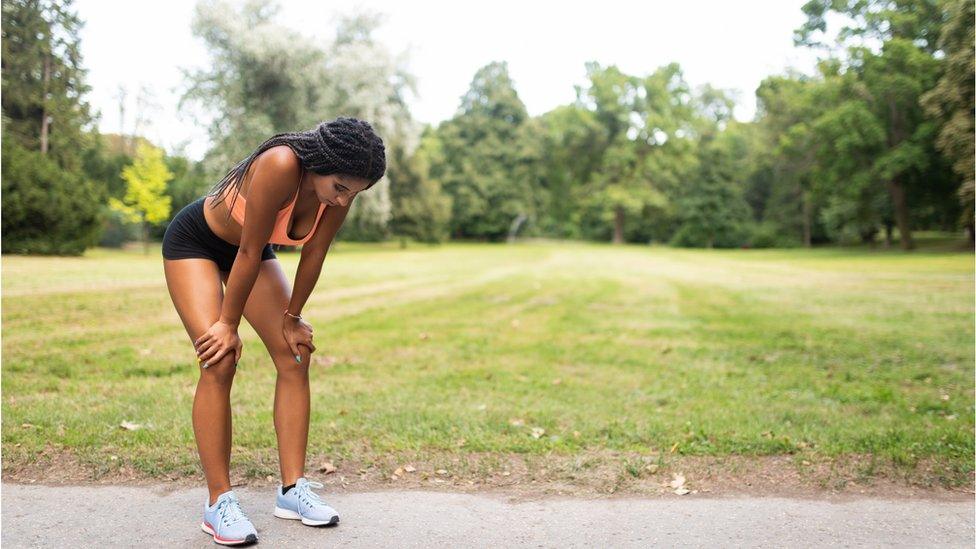
Four of five women surveyed said they would feel unsafe in a park after dark
Keep Britain Tidy's chief executive, Allison Ogden-Newton OBE, said it was "critical" to understand what makes women and girls feel safe in green spaces.
She said research showed 70% of people in urban areas did not have access to good quality green spaces.
"When coupled with women's concerns about using those few green spaces they have access to, it means there is a real inequality."

Follow BBC Yorkshire on Facebook, external, Twitter, external and Instagram, external. Send your story ideas to yorkslincs.news@bbc.co.uk, external.
- Published29 March 2023

- Published7 October 2022
